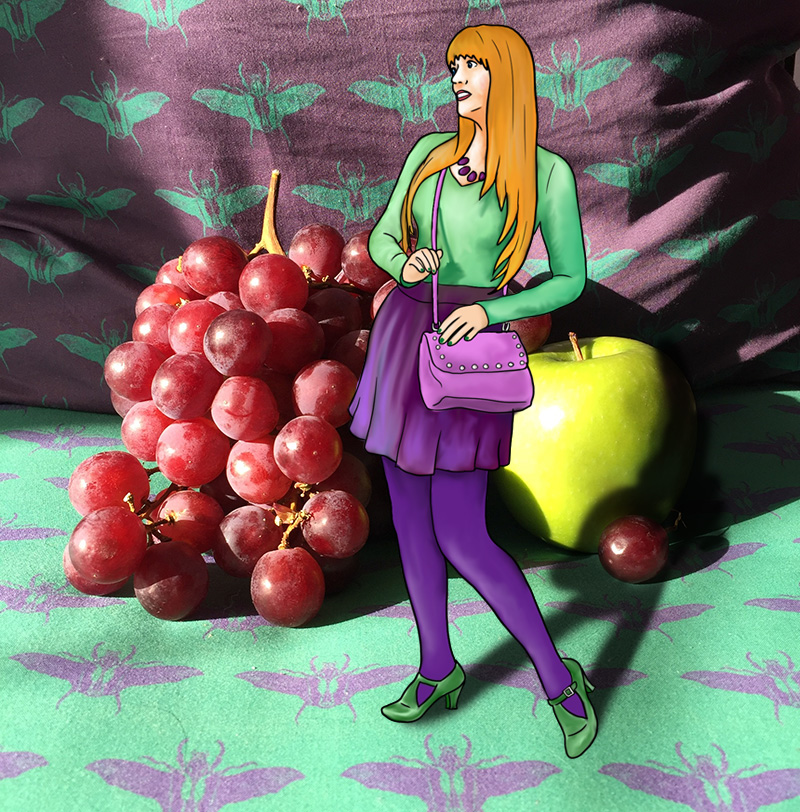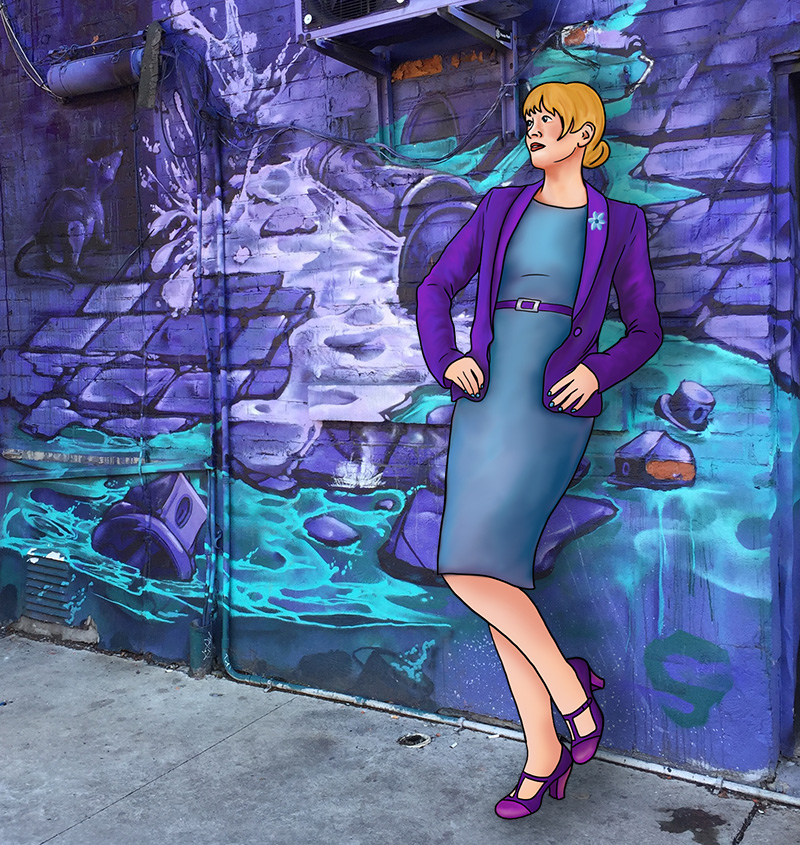Both purple and green are secondary colours, and often associated with villains in comic books. This villainy is natural for both when they are juxtaposed because while they are tonally similar, they are very much at odds. Both refuse to concede to the other, and both attempt to be dominant when juxtaposed. Both have a cool element, from their common blue, and both also have a certain warmth, which green gets from yellow and purple gets from red. Certainly, from this perspective, purple wins, since red will beat yellow in almost any battle, but somehow green puts up a hell of a fight when battling it out with purple.


